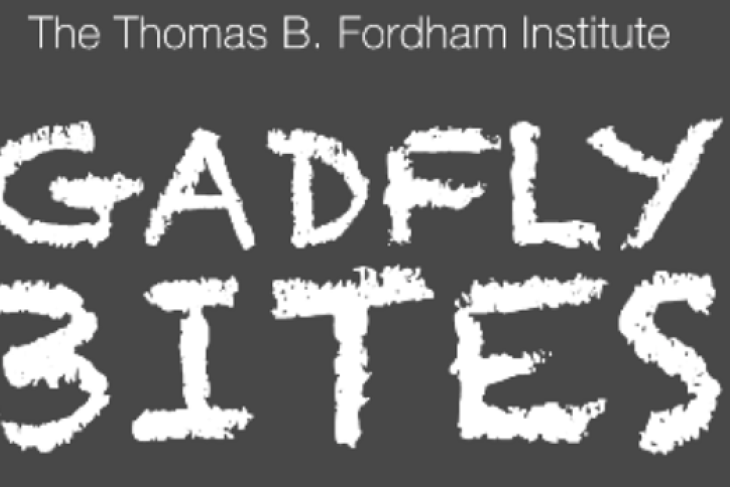- Our first piece today is yet another look at the EdChoice voucher program from the perspective of a suburban school district leader. That is, a district who has had just four students ever leave the district for a private school via a voucher. Our own Chad Aldis is interviewed here making the point about magnitude. But why, I ask you, should the district’s perspective on this matter as much as (or more than) a parent’s perspective? Why are the parents never interviewed? (News 12, Cincinnati, 1/6/20) The matter of perspective is raised loud and clear in this opinion piece from Ed Post, responding to a previous national voucher-bashing piece. Fordham’s annual Ohio By the Numbers report is quoted and linked here, discussing vouchers’ minimal share of our state’s education expenditures. (Education Post, 1/6/20)
- The interim CEO of Lorain City Schools held a convocation of staff this week, his first in the new job. He had a lot of positive stuff to say, but I was struck by this: “I am not here to bring a bunch of change. But I think it's important to see what we currently are doing, what's working, what's not working and how do we tweak it to make it better or maybe it falls off the table.” It is noted that he is planning to keep former CEO David Hardy's "Big Board," or "excellent schools dashboard," a system used to track academics, student attendance and behavior, and building atmosphere. You know, the data that Hardy used in his successful effort to bring the district’s report card up from and F to a D last year? For some reason, though, continued use of this data was characterized in the story as something of a worry (for whom, you may well ask). Luckily, the interim CEO figured it would be and thus added: “My concern is that we move forward and we keep moving forward and we keep doing better things in terms of achievement and get out of academic distress.” Yeah. Like was happening before you got here. (Elyria Chronicle, 1/7/20)
- The Columbus City Schools board of education met for its first meeting of the year this week. Among other things, the board voted to approve the sale of five unused buildings in the district. Sounds like the board, under new leadership for the first time in a while, will have its hands full tussling with the historic preservationists on the fate of one of those facilities. But here’s hoping that there are lots of awesome charter schools champing at the bit, cash in hand, to snatch up any and all of those buildings. (Columbus Dispatch, 1/7/20)
- A new report from the Ohio Department of Higher Education indicates that fewer Ohio graduates in the Class of 2018 needed remedial courses when they enrolled in college. ODHE officials couldn’t really say why the reduction occurred (continuing a downward trend over the last few years), and a group of college professors interviewed were downright dismissive of the findings: “It remains to be seen whether there has been real improvement in college readiness or simply some gimmicky addressing of the problem.” Oooh. Academia burn! (Dayton Daily News, 1/8/20) Speaking of data at odds with other data, Dayton City Schools announced this week that it is seeing progress in its efforts to increase attendance for students (and staff) in the district. While officials noted five very specific points of improvement, this data is at odds with what was reported mere weeks ago regarding the effects of their new busing program on attendance. (WDTN-TV, Dayton, 1/7/20)
- Finally today, good news for Parma City Schools as they were removed from “fiscal caution” status, and a certain amount of oversight by the state as a consequence, after four years. How’d they do it? Oddly enough, by being more fiscally responsible. Or, as the district supe put it: “If you look at our salaries compared to some neighboring districts, we’re still below where we want to be, but leaders of our negotiating teams understood the fiscal parameters that we have to deal with and really look to the better of the district as opposed to sometimes the better of just themselves. That’s an important consideration in being fiscally solvent.” In other words, not spending money you don’t have helps keep you out of debt. Wonder if anyone else has stumbled on this secret formula? (Cleveland.com, 1/8/20)
Did you know you can have every edition of Gadfly Bites sent directly to your Inbox? Subscribe by clicking here.
Policy Priority:
Topics:




